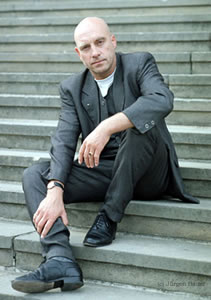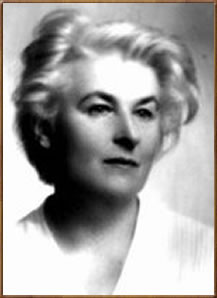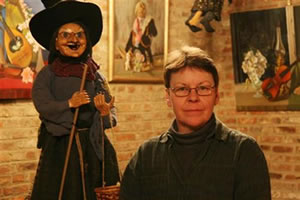De Engelse schrijver Charles Dickens werd geboren op 7 februari 1812 in Landport. Dat is vandaag precies 200 jaar geleden. Zie ook alle tags voor Charles Dickens op dit blog.
Uit: David Copperfield
“Whether I shall turn out to be the hero of my own life, or whether that station will be held by anybody else, these pages must show. To begin my life with the beginning of my life, I record that I was born (as I have been informed and believe) on a Friday, at twelve o’clock at night. It was remarked that the clock began to strike, and I began to cry, simultaneously.
In consideration of the day and hour of my birth, it was declared by the nurse, and by some sage women in the neighbourhood who had taken a lively interest in me several months before there was any possibility of our becoming personally acquainted, first, that I was destined to be unlucky in life; and secondly, that I was privileged to see ghosts and spirits; both these gifts inevitably attaching, as they believed, to all unlucky infants of either gender, born towards the small hours on a Friday night.
I need say nothing here, on the first head, because nothing can show better than my history whether that prediction was verified or falsified by the result. On the second branch of the question, I will only remark, that unless I ran through that part of my inheritance while I was still a baby, I have not come into it yet. But I do not at all complain of having been kept out of this property; and if anybody else should be in the present enjoyment of it, he is heartily welcome to keep it.
I was born with a caul, which was advertised for sale, in the newspapers, at the low price of fifteen guineas. Whether sea-going people were short of money about that time, or were short of faith and preferred cork jackets, I don’t know; all I know is, that there was but one solitary bidding, and that was from an attorney connected with the bill-broking business, who offered two pounds in cash, and the balance in sherry, but declined to be guaranteed from drowning on any higher bargain. Consequently the advertisement was withdrawn at a dead loss – for as to sherry, my poor dear mother’s own sherry was in the market then – and ten years afterwards, the caul was put up in a raffle down in our part of the country, to fifty members at half-a-crown a head, the winner to spend five shillings.”

Charles Dickens (7 februari 1812 – 9 juni 1870)
De Amerikaanse schrijfster Emma Lanier McLaughlin werd geboren op 7 februari 1974 in Elmira, New York. Zie ook mijn blog van 7 februari 2009.
Uit: Nanny Returns
„“Fuck,” I hear from the front stoop. I stare at the door’s peeling paint with an intensity rivaling Grace’s. “Look, just open up,” he speaks in a plaintive slur. “I left my wallet in the cab…and I just…I heard you…I know you’re — fuck.” I hear a thump and then something sliding heavily down the other side of the door.
Grace drops her head to sniff the jamb. I take a tentative step and ever so slightly lift the curtain. The streetlamp illuminates splayed kh
aki pants ending in shiny loafers. I make out slender fingers drifting open, releasing their grip on a black iPhone. My well-attired assailant is now slipping into unconsciousness? Death?
“Hey.” My voice surprises me and sets Grace barking. “Stop.” I put my hands around her muzzle to listen…Nothing. “Hey!” I slap the door.
“Yeah?” he coughs. “You’re home.”
“Who are you looking for?” I step around where Grace sits, ears squarely perked.
“Um…” I hear a scuffle; he’s attempting to stand up. “I’m looking for a…Nanny?”
My throat goes dry. I peer back out through the frayed lace covering the pane between us. “What?”
“Yeah, Nanny. Are you — ”
“Stand in front of the glass. On your right.”…Nothing. “Hey!”
“Yeah.”
“Your other right.”
Suddenly my view of the stoop is filled with a swerving face — a man — boy — somewhere in between. Beneath the mussed blond hair, atop the faintly freckled nose are two bloodshot blue eyes. They look out at me from the striking bone structure that unmistakably conjures his mother. I push my forehead into the cold glass, feeling at once a hundred years old and twenty-one. “Grayer?”

Emma McLaughlin (Elmira, 7 februari 1974)
Emma McLaughlin (r) en medeschrijfster Nicola Kraus (l)
De Franse schrijfster Christine Angot werd geboren op 7 februari 1959 in Châteauroux. Zie ook mijn blog van 7 februari 2009.
Uit: Rendez-vous
„Je connaissais Eric depuis un mois. Je l’avais déjà croisé, dans des bars de théâtre à la fin des spectacles, mais nous n’avions pas parlé, presque pas, rien. Je l’avais vu jouer deux ou trois fois. C’était un acteur génial. Je le connaissais depuis un mois, mais j’avais commencé à entendre parler de lui six ans plus tôt. A l’époque, son nom ne circulait pas comme maintenant, je ne le connaissais pas. Mais sur cinq ou six ans, des gens différents, dans des villes différentes, m’avaient rapporté avec des anecdotes toutes différentes : ah, tu sais il y a un acteur qui t’adore : Eric Estenoza. Ça me faisait plaisir, mais je n’y prêtais pas attention. Ça m’arrivait tout de même de temps en temps d’avoir des retours agréables, ce n’était pas le seul. Surtout avec des acteurs. Souvent les acteurs aimaient mes livres. La particularité était que ce même nom revenait tout le temps, par des sources différentes, et sur une période de temps longue. Et avec intensité. Avec insistance. Comme un encerclement. Et puis toujours ce mot : il y a un acteur qui t’adore. Toujours la même phrase. Avec l’air étonné de la personne qui me le racontait. La première fois c’était en 99, puis six mois plus tard, et puis ça s’était égrené comme ça. Des gens me rapportaient qu’il m’adorait, avec ce mot-là, le message me revenait régulièrement aux oreilles, et ce qui était surtout étrange, par des sources vraiment différentes, sur plusieurs années. Et ce qui était encore plus étrange c’est qu’il m’avait à peine adressé la parole le jour où il m’avait vue, une ou deux fois au cours de ces six années quand j’avais eu l’occasion de le croiser. En 99, je ne l’avais pas encore vu jouer. Et puis je l’avais vu quelques mois plus tard dans une pièce de Sarah Kane. J’étais avec un ami, acteur aussi, qui nous pr
sentait, je n’avais pas du tout l’impression de rencontrer quelqu’un qui m’adorait. Son comportement était tout à fait ordinaire avec moi, tout à fait banal, d’ailleurs je ne m’en souvenais même pas. Lui se souvenait bien de ce qu’il m’avait dit mais moi j’avais oublié.“

Christine Angot (Châteauroux, 7 februari 1959)
De Australische schrijver Peter Carey werd geboren op 7 februari 1943 in Bacchus Marsh (Victoria). Zie ook mijn blog van 7 februari 2007 en ook mijn blog van 7 februari 2008 en ook mijn blog van 7 februari 2009.
Uit: My Life as a Fake
„I have known John Slater all my life. Perhaps you remember the public brawl with Dylan Thomas, or even have a copy of his famous book of ‘dirty’ poems. If it’s an American edition you’ll discover, on the inside flap, a photograph of the handsome, fair-haired author in cricket whites. Dewsong was published in 1930. Slater was twenty at the time, very nearly a prodigy.
That same year I was born Sarah Elizabeth Jane to a beautiful, impatient Australian mother and a no less handsome but rather posh English father, Lord William Wode-Douglass, generally known as Boofy.
Slater’s own class background was rather ambiguous, though my mother, a dreadful snob, had a tin ear, and I know she thought Slater very grand and therefore permitted him excesses she would not have tolerated from the Chester grammar-school boy he really was.
It was Slater who carved my father’s thirtieth birthday cake with his bare hands, who rode a horse into the kitchen, who brought Unity Mitford to dinner during the period she was stealing stationery from Buckingham Palace and carrying that nasty little ferret around in her handbag.
I cannot say that I understood his role in my parents’ marriage, and only when my mother killed herself — in a spectacularly awful style — did I suspect anything was amiss. In the last minutes of her life I saw John Slater put his arms around her and finally I understood, or thought I did.
From that moment I hated everything about him: his self-absorption, his intense angry good looks, but most of all those electric blue eyes which inhabited my imagination as the incarnation of deceit.
When my mother died, poorBoofy fell apart completely. He drank and wept and roared, and after falling down the stairs the second time he packed me off to St Mary’s Wantage in Berkshire, which I did not like at all.“

Peter Carey (Bacchus Marsh, 7 februari 1943)
De Nederlandse dichter en schrijver A. den Doolaard werd geboren op 7 februari 1901 in Hoenderloo. Zie ook alle tags voor A. den Doolaard op dit blog.
Uit: D.H. Lawrence. De gepijnigde polygraaf
“Zijn tweede, en eerste goede, roman: ‘Sons and Lovers’ was normaal wat methode betrof: uit karakteren milieu-beschrijving bleek een donker en krachtig realisme, toegespitst op het sexueele. Hij was een kind dat opgroeide in de mijnwerkerswereld, en de deugden en gebreken van een dergelijke afstamming blijven in zijn werk zuiver behouden: hij is oorspronkelijk en fel, schamper en trotsch, zwaar van somberheid en smartelijk bewust van zijn onbedwingbare scheppingsdrift. Deze leefdrift en voortplantingsdrang is hem door haar heftigheid een ziekte, waarvan hij zich tevergeefs zoekt te bevrijden. Dit is geen warmte meer, maar schroeien en zengen, dit is geen liefde meer, maar een gevecht. Afstand kent hij niet; stelling nemen doet hij niet; dag en nacht strijdt hij met de werkelijkheid op den korten afstand, lijf aan lijf; een oneindig aantal malen raakt hij verward en moet zich uit die ‘clinch’ gehavend loswringen. Door het gewelddadig zoeken naar het hart van de werkelijkheid werden zijn handen donker van geronnen bloed en zijn stem schamper en uitdagend. Hij wilde de werkelijkheid overmeesteren van vlakbij, met doorborenden blik en harde knoken. Elk van zijn liefkoozingen wordt door zijn overmatige heftigheid een kneuzing en met elke wonde die hij toebrengt, wondt hij zichzelf.
De bekentenis hiervan zijn z’n verzen, laaiend en verbrokkeld als smeulende lava. Hij weet, dat zijn verzen slecht zijn, en zijn proza soms onbeholpen van heftigheid; hij zoekt en zoekt naar een synthese, een intooming, een kleinste gemeene veelvoud van zijn kunnen; en vindt het van buiten af. Via een landschap en een ras, die de weerspiegeling zijn van zijn ziel. Dat landschap is Mexico, zwavelgeel, ziedend van zonnedrift en overwoekerd door cacteeën; het ras dat hij, sombere Angelsaks, zoekt is eerst het Latijnsche, lachend uitkomend voor het phallische ‘geheim’; en later de Mexicaansche Indiaan, wiens voortplantingsdrift een stage gloed is, verborgen brandend achter glasharde oogen.”

A. den Doolaard (7 februari 1901 – 26 juni 1994)
De Amerikaanse schrijver en journalist Gay Talese werd geboren op 7 februari 1932 in Ocean City. Zie ook mijn blog van 7 februari 2008 en ook mijn blog van 7 februari 2009.
Uit: Thy Neighbor’s Wife
„She was completely nude, lying on her stomach in the desert sand, her legs spread wide, her long hair flowing in the wind, her head tilted back with her eyes closed. She seemed lost in private thoughts, remote from the world, reclining on this windswept dune in California near the Mexican border, adorned by nothing but her natural beauty. She wore no jewelry, no flowers in her hair; there were no footprints in the sand, nothing dated the day or spoiled the perfection of this photograph except the moist fingers of the seventeen-year-old schoolboy who held it and looked at it with adolescent longing and lust.
The picture was in a photographic art magazine that he had just bought at a newsstand on the corner of Cerinak Road in suburban Chicago. It was an early evening in 1957, cold and windy, but Harold Rubin could feel the warmth rising within him as he studied the photograph under the streetlamp near the curb behind the stand, oblivious to the sounds of traffic and the people passing on their way home.
He flipped through the pages to look at the other nude women, seeing to what degree he could respond to them. There had been times in the past when, after buying one of these magazines hastily, because they were sold under the counter and were therefore unavailable for adequate erotic preview, he was greatly disappointed. Either the volleyball-playing nudists in Sunshine & Health, the only magazine showing pubic hair in the 1950S, were too hefty; or the smiling show girls in Modern Man were trying too hard to entice; or the models in Classic Photography were merely objects of the camera, lost inartistic shadows.“

Gay Talese (Ocean City, 7 februari 1932)
Zie voor nog meer schrijvers van de 7e februari ook mijn vorige twee blogs van vandaag.











